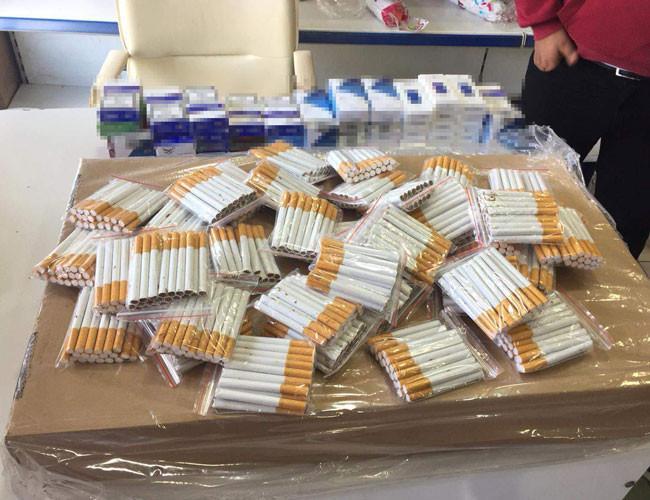
Illicit tobacco trade has significantly been down in Turkey mainly thanks to thorough measures taken since 2010, a new report has shown.
While the share of illicitly traded tobacco products was nearly 20 percent in total consumption back in 2010, it decreased to 8.7 percent in the third quarter of 2018, a report by the Tobacco Industrialists’ Association showed.
This has led to a key sum of taxes back to the state budget. The tax evasion in this area has decreased from 9 billion Turkish Liras ($1.6 billion) to 3.8 billion liras ($675 million), according to the report.
When preparing the report, a total of 10,000 packages of cigarettes were randomly collected from the streets in 36 provinces, with populations of more than 200,000 people. Then, the association experts examined whether these packages were genuine or illicitly-traded to share the results with officials.
According to the report, the share of illicitly-traded tobacco products has been decreasing since 2010, with the largest decline being seen since 2015, due to a series of serious measures which were taken on borders, especially in eastern ones. In this vein, a Bulgaria-based company’s products, which had the largest share in the illicitly-traded tobacco products across Turkey, suffered a blow. While the share of the products of Bulgartabac in the whole illegally-traded tobacco market was 45 percent in 2014, it has now decreased to 22.3 percent, according to the report.
The illicitly-traded tobacco products are still quite common in a number of eastern and southeastern provinces, including Van, Batman, Diyarbakır, Adıyaman and Gaziantep, despite measures, the report also showed. For instance, the share of such products in total consumption surged to 40.2 percent in 2018, although it was 25.6 percent in 2017.
Illicit trade can be prevented in various ways, according to the World Health Organization Protocol to Eliminate Illicit Trade in Tobacco Products. These include supply chain control mechanisms such as licenses to produce, transport and sell tobacco as well as track and trace systems.